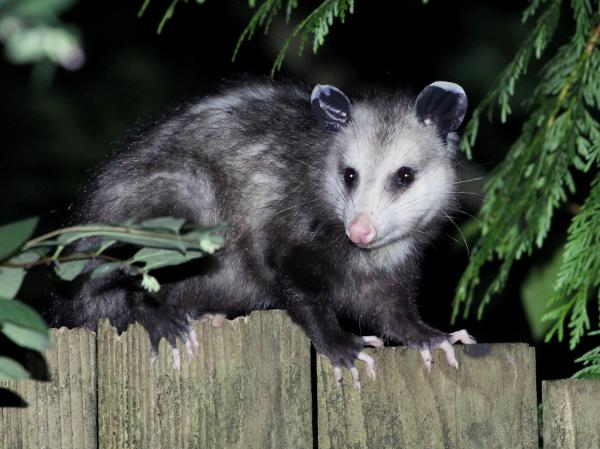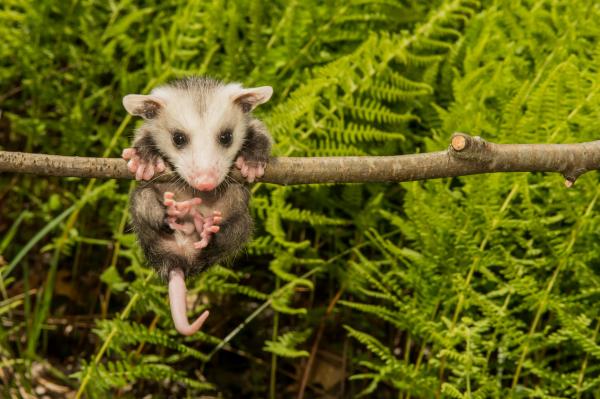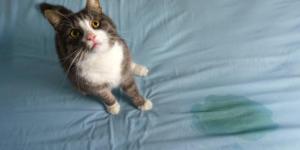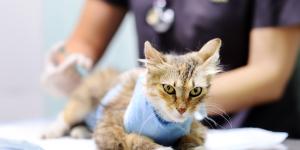Are Possums Dangerous to Humans or Pets?


Possums are extremely gentle creatures and they are not aggressive in the least. That said, in rare situations, possums will attack, specifically when they have to defend themselves much like any other species. A possum has only two lines of defense– either it will attack or play dead. While it is not a danger to humans unless provoked, it can do sizable damage to pets too. In this AnimalWised article, we will explore if possums are dangerous to humans or pets.
Offense as Defense?
When you are in the wild and cross a possum, the first thing that crosses your mind is whether it is a dangerous animal. It is around the size of a medium level dog, has 50 sharp teeth and claws that open the toughest skins.
So, if the possum is threatened enough, it can get aggressive with negative results. Possums avoid confrontation with humans by playing dead. But, if they feel threatened enough, they can even attack. In fact, playing dead is a mode of defense that the opossum is traditionally associated with. Research has shown that this is like a reflex action originating in the possum's brain, lasting from just a few minutes to an hour. The possum has a natural instinct to act dead while standing against more animals, especially humans.
The animal we are calling possum is technically called an opossum, a distinction we make in this article on possums as pets.
Pet friendly or lethal?
While possums are rarely dangerous, the opossum is a predator when it comes to cats. When possums become problematic, they forage near commercial and residential areas after nesting. These critters are pesky, disrupting homes, gardens, chicken coops and areas meant for pets while looking for food. When they are directly attacked, these creatures hiss and growl. Possums attack pets or even humans with massively pointed teeth. Opossum attacks are rare, but they do take place, which is why having a possum as a pet is not such a good idea. Pests in terms of the diseases they spread to people and pets include TB, leptospirosis, coccidiosis, tularemia, spotted fever and other diseases.

Deadly diseases from Possums
Opossums serve as host animals to ticks, lice, mites, and fleas. This puts cats and dogs at the risk of infection. Horses are susceptible to a neurologic disease following exposure to possums, through the result of exposure to a protozoan Sarcocystis neurona. Sickness and property destruction from possums is the reason why these pesky creatures are a problem. Wildlife professionals work to restore normalcy in homes and yards when a possum outbreak occurs.
Nocturnal creatures with bad habits
Possums are nocturnal animals. They scavenge for trash and eat the carcass of dead animals. Such reasons make it possible for the possum to be a host for rabies. Though possums are generally not associated with this disease, there is a possibility they may develop it. Possums and rabies do not go together, but an opossum has extremely aggressive habits including biting, scratching and clawing when agitated. Their natural defense mechanisms come into play when they are attacked.

A Possible Threat: The Virginia/American possum
This possum is the only marsupial that lives wild in the US. This animal is the size of a small cat with over 50 teeth. Opossums can be encountered in the backyard and pose a threat to pets and humans. They can also threaten livestock and crops of farmers. The diet is varied including corn and poultry. These creatures steal chickens. Poultry such as ducks and turkeys are also at risk.
Possums are also a threat to native wildlife such as Kiwis in New Zealand. But they are found across the Western world. However, they are only aggressive when provoked. Like any other species, the possum is only offensive when attacked.
This article is purely informative. AnimalWised does not have the authority to prescribe any veterinary treatment or create a diagnosis. We invite you to take your pet to the veterinarian if they are suffering from any condition or pain.
If you want to read similar articles to Are Possums Dangerous to Humans or Pets?, we recommend you visit our Other health problems category.









